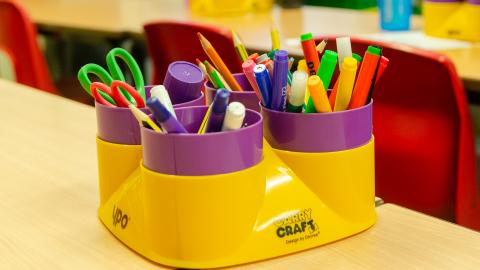School mission statement
At Cononley Primary School we are committed to inspiring and challenging our children:
- To become independent lifelong learners and thinkers.
- To value and respect themselves and others
- To reach their full potential and become the best possible citizens of tomorrow.
Aims of Policy
At Cononley Primary School the purpose of assessment is:
- To identify gaps in pupil’s knowledge so that teachers can adjust planning and teaching to enable children to make the next steps in learning and reach their full potential.
- To demonstrate progress by showing that pupils know and remember more.
Formative Assessment:
Ongoing, formative assessment is an integral part of effective teaching and learning, allowing teachers to identify what children know and remember. Formative assessments will be used by staff on a day to day basis to find out what children know, need to consolidate or are finding difficult. Staff will work flexibly, adjusting planning and teaching in response to all of their pupils’ needs, including SEND, enabling additional support to be provided quickly when needed. Progress will be gauged by children knowing and remembering more. It is vitally important that key knowledge is transferred to the long-term memory in order for children to understand key concepts and ideas in future learning. Formative assessments are used to inform next steps in teaching.
Early Years Foundation Stage
Staff use their experience and knowledge to gauge whether a child’s learning and development is on track for their age. They spend lots of time engaging with children and use their experience and knowledge to plan for the appropriate support which will enable all children to make progress from their starting points. At the end of EYFS, staff use their judgement to assess whether the children have met the Early Learning Goal for each area of learning and inform parents/carers.
Key Stage 1 and Key Stage 2
Pupils will be assessed on the knowledge they have learned. In line with research on memory and retrieval, assessments take place at approximately 2, 6 and 12 weeks after each unit of work. The purpose is to determine whether knowledge has transferred to long term memory; progress will be measured by pupils knowing and remembering more. Assessments are carried out using a variety of ways including observation of pupils, discussions, questioning, and low-stakes tests and quizzes.
Monitoring
Monitoring is carried out by subject leaders, senior leaders and governors to assure the reliability of assessment throughout the school, making sure pupils know and remember their specific taught curriculum and develop greater fluency as they move through the school.
Maths and English are monitored each term using a range of assessments and standardised tests. During the summer term a full national test or standardised test is completed to assure whether pupils are working at expected standard or above. We take part in LA moderation which further validates results in Year 2 and Year 6.
Impact
At the end of each year the school reviews the effectiveness of assessment, considering the following key questions:
- What is working well in assessment?
- What could be improved?
Reporting to Parents and Carers
Using the statements in the Programmes of Study for their year group, parents and carers will receive a summary of their child’s attainment in the end of year report.
Early Years Foundation Stage
At the end of EYFS, each child will receive a report showing their attainment in relation to the Early Years Outcomes: attainment is recorded as ‘on track’ or ‘not on track’.


